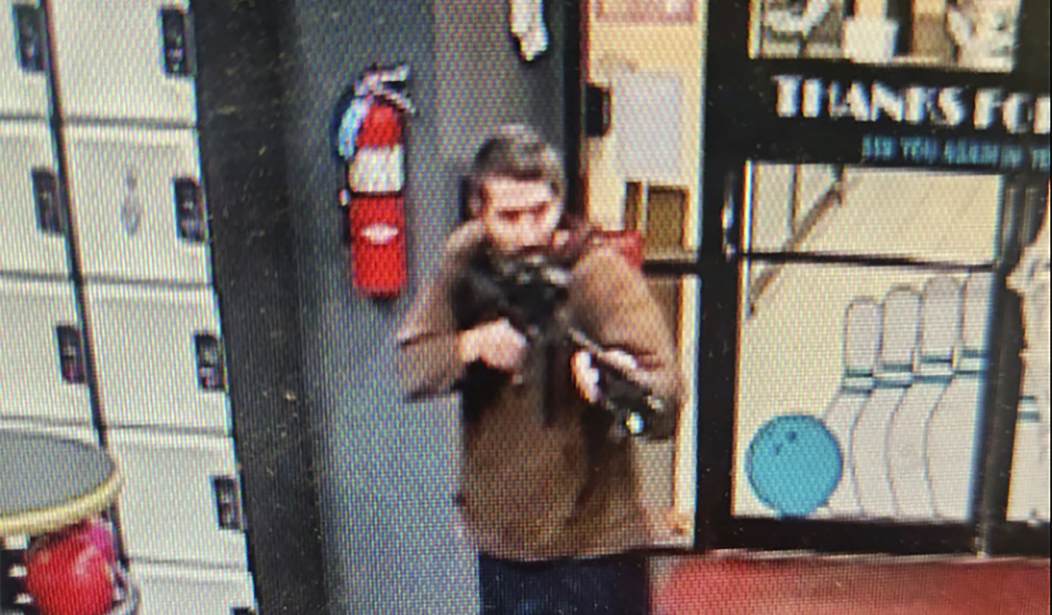Robert Card, the shooter who allegedly killed 18 people in Lewiston, Maine, "displayed a textbook set of warning signs," says the New York Times. He heard voices. He told family members he was planning violence. His behavior was radically altered in the weeks leading up to the shooting.
His family, his military superiors, and law enforcement all knew he was a danger — an extreme threat to commit a mass casualty attack. But for a variety of reasons, intervention failed.
“So often I think we’re talking about how to get people on the radar,” said Jillian Peterson, the executive director of the Violence Project, which studies mass shooting perpetrators. “And in this case, he was on the radar of a lot of different systems, and they still couldn’t get him intervention.”
Card was on a mission — a mission from which he could not be swayed or stopped.
Police records, including the accounts of family members and colleagues in his Army Reserve unit — one of whom sent an anguished late-night text message to his supervisor six weeks before the shooting — show that Mr. Card’s friends and relatives had grown increasingly alarmed about his mental condition.
But even as they communicated with each other and law enforcement, even as he was confronted and hospitalized and had a sheriff’s deputy come knocking, nothing went far enough.
His brother, his ex-wife, his teenage son, and his sister — all knew that Card was a powder keg and tried to get him help — unsuccessfully. But perhaps the most tragic attempted intervention came from the military. At the annual training at Camp Smith in New York with his Army Reserve unit, Card accused three soldiers of calling him a pedophile, assaulted one of them, and locked himself in his room.
This led to a stay in a mental health facility in New York for 14 days.
But the system to treat people who resist getting help on their own is geared toward acute, not long-term, problems. Involuntary stays require an imminent threat of harm and generally last from 72 hours to two weeks.
After Mr. Card’s discharge from the hospital, the Army directed that he not have access to military weapons or participate in live-fire activities, and declared him to be “non-deployable.” Reserve medical personnel made multiple attempts to contact Mr. Card over the next few months, according to a statement from the Army.
The Army’s decisions affected only what happened when Mr. Card was on duty. But reservists like him are rarely on duty, so commanders are limited to alerting civilian authorities with whom they may be unfamiliar, said Michael Aschinger, a retired Army Reserve sergeant major.
Again and again, authorities had the opportunity to stop Card's descent until he reached a point of no return. In September, Card punched a fellow soldier and threatened to “shoot up” the Army Reserve facility in Saco, Maine. This resulted in the soldier texting his commanding officer at the base in Saco with what in hindsight was an eery premonition of what was to come. His 2 a.m. text suggested that the officer change the passcode on the front gate in case Card showed up.
“I believe he’s messed up in the head,” the soldier, identified as Staff Sgt. Hodgson, wrote, adding that he loved Mr. Card “to death,” but “I do not know how to help him and he refuses to get help or to continue help.”
“I believe he’s going to snap and do a mass shooting,” he wrote.
That was less than a month before Robert Card shot up a bar and a bowling alley, killing 18 people and wounding 13.
There are already gun laws that could have stopped Robert Card. His involuntary commitment to the New York mental health facility should have prevented him from purchasing a rifle.
The Times reports, "Any involuntary commitment should have been reported to a national database that would have prevented Mr. Card from passing the background check required to buy guns from a licensed dealer. Officials have said that Mr. Card’s name was not in the database and that he purchased guns legally after his hospital stay."
The family tried to stop him and failed. The military did everything it could to prevent the shooting and also failed. Local police may have done more, but they're not soothsayers. They knew Card was a danger but had few options because the U.S. Constitution placed limits on what actions they could take.
The bottom line is that piling more gun control laws on top of the ones that failed in Lewiston is useless.










Join the conversation as a VIP Member